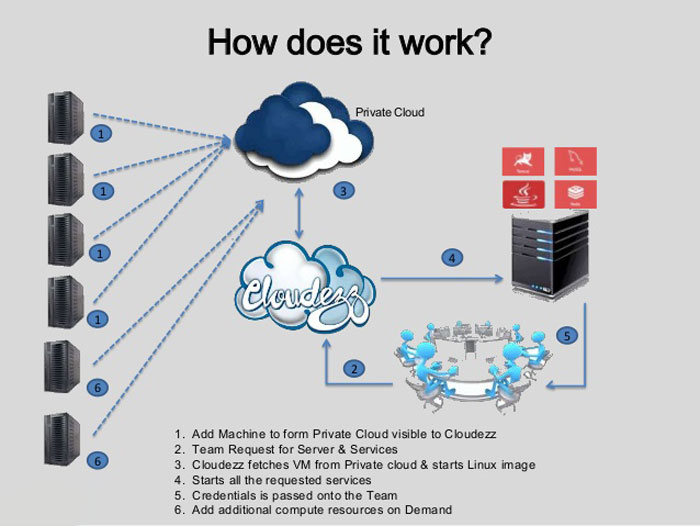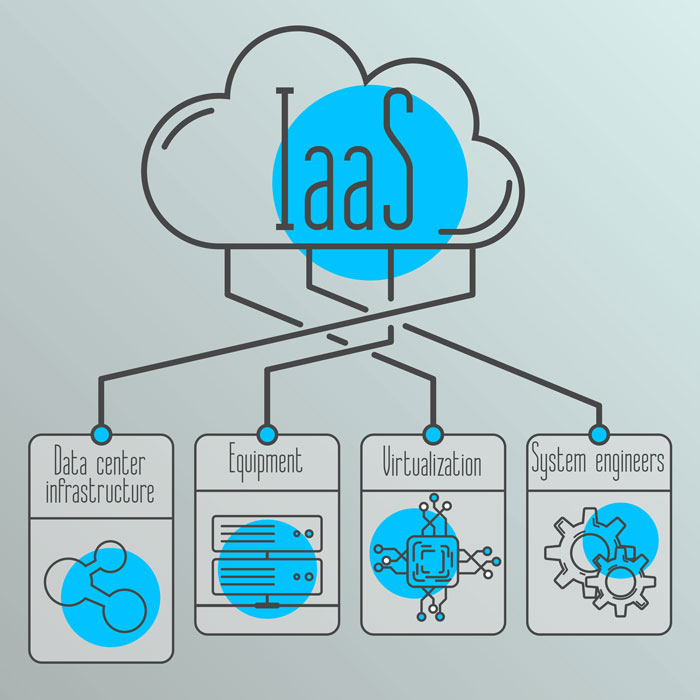Not so long ago, the only way to host a website along with its files and vital information was to utilize a physical high-power server that was often times remotely located. The continuous eruption of innovative ideas has once again spewed a ground breaking technological discovery that revolutionized the process of file hosting.
Cloud hosting is basically a system that involves the use of virtual servers that are mostly online but integrate computing resources from an extensive network of physical servers. In loose terms, one can simply say a cloud server is online; though if it is intrinsically assessed it is way more complicated than that statement.
How does cloud hosting work?
The efficiency with which a cloud server performs its duty regardless of the number of data or files being hosted is quite remarkable, it is basically able to process data from individual websites lodged in its networks with impressive speed and absolute dedication even though it may be performing several different functions for other websites also on its virtual network. What is also incredible about the cloud servers is the ease with which they delegate tasks to each other, ensuring that even a defect in any portion of the network doesn’t affect the general performance of the servers. This attribute of cloud hosting that is also referred to as resource pulling ensures that the cloud servers belonging to a provider can be dispatched to effectively complete varying activities for multiple clients while also exhibiting properties of dynamism and spontaneity.
What do WordPress Hacks Mean for the Little Guy?With cloud servers, consumers can facilitate several complex user actions without interacting with their hosting providers.
Also, the flexibility of cloud hosting is vital to its optimized performance, with the servers able to expand their functional prowess when necessary in order to complete very intricate tasks. And while the versatility of the cloud servers is impressive, their functionality is also quite measured leading to the apt appropriation of duties to each component of the servers.
Cloud hosting classes
Top Tech Trends to look out for in 2013All forms of cloud hosting services fall under these two main classifications; Infrastructure as a Service (IaaS) and Platform as a Service (PaaS).
Infrastructure as a Service (Iaas)
Taking Advantage of Technology in Your WorkplaceIn this classification of cloud hosting, the customer is basically given access to the virtualised hardware resource to install their preferred choice of software environment for the modification of their web application. It is usually more customizable, making it perfect for businesses with very intricate IT infrastructure. Its utilization of a virtualised hardware resource makes it necessary to be managed by experienced IT personnel.
Platform as a Service (PaaS)
Free 3D Models: Get Free 3D Elements From Tf3dm
In PaaS, the software environment is already available to the client who simply goes ahead to develop and install their application. Though it is less customizable compared to IaaS, it is able to perfectly function in a business with a well laid out framework. Also, easier to operate than IaaS, it is the right fit for businesses only able to hire less proficient IT personnel.
Why cloud hosting is right for you
Cloud hosting is gradually becoming the hosting system of choice for many users who have educated themselves with the mode of its operations and the functional competency. One of the pros of cloud hosting that makes it the ideal hosting type is its reliability. How often times with traditional hosting do websites suddenly become inactive, and URL addresses suddenly do not channel internet visitors to the websites they wish to be conveyed to all because of a malfunction or defect in the physical servers hosting the websites. This is very much unlikely the case with cloud hosting because of the foundation of its framework, which has been equipped to draw resources such as disk space from a very extensive network of underlying physical servers. Customers, therefore, don’t have to worry about physical server failures or malfunctions because when that happens, the virtual server catering to the client simply pulls its resource from the rest of the functioning network.
Many clients who are apprehensive about the use of cloud hosting most often times believe that it is less secured because of the absence of properly secured physical servers. But it must be explained that the cloud doesn’t just exist on the internet space by the snap of the fingers, rather it is engineered by the intricate interaction between a vast amount of reclusive physical servers that are properly protected and secured.
You don’t have to worry about switching servers
This is all too familiar for many who use traditional hosting plans for their businesses. Yes, remember those times when the surge in the numbers of visitors and activities affect the functionality of a website, and it is usually resolved by relocating the files and data of the website to a more appropriate server? With cloud hosting, one need not worry about such constraints as the cloud servers are highly scalable, able to retrieve more resources to meet the expanding needs of the website.









